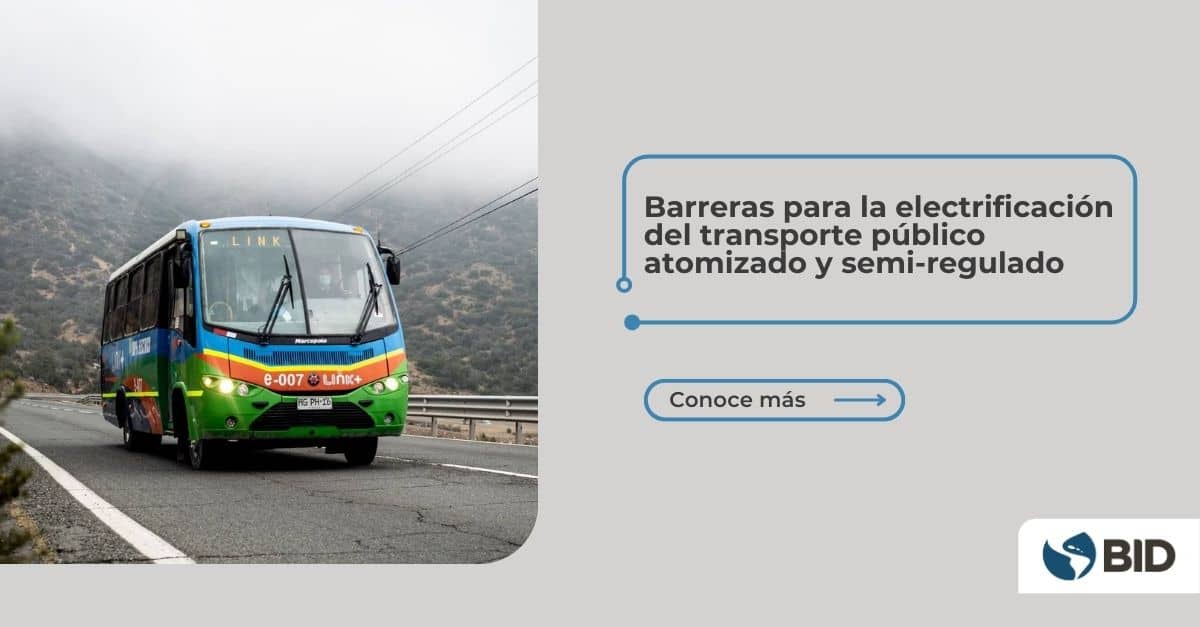The electrification of fleets: the evolution of freight transport in Mexico towards 2025

The electrification of fleets in Mexico presents itself as a crucial trend that will mark the evolution of freight transport by the year 2025. This process, driven by the need to reduce harmful gas emissions and improve operational efficiency, is transforming the way companies manage their supply chains. As more companies adopt electric vehicles, this transition is expected to not only optimize operational costs but also contribute to a more sustainable environment. In this context, the electrification of fleets not only represents a technological advance but a response to current social and environmental demands.
The electrification of fleets represents a significant change in the way freight transport operations are carried out in Mexico. As the country moves toward 2025, the adoption of electric vehicles and sustainable technologies is anticipated to transform not only the transport sector but also operational efficiency and environmental sustainability. This article explores the current and future trends in fleet electrification in the country.
Current context of freight transport in Mexico
Freight transport in Mexico has been influenced by a number of factors, including the growth of e-commerce and the need to modernize infrastructure. The demand for more sustainable transport has led to a growing interest in alternatives to internal combustion vehicles. In this regard, fleet electrification presents an attractive solution for companies looking to reduce their carbon footprint and improve their energy efficiency.
Legislative and regulatory drives
The Mexican government has implemented various regulations and policies that promote the adoption of clean technologies in the transport sector. With tax incentives and subsidies for the purchase of electric vehicles, companies are being encouraged to consider the electrification of their fleets. Current legislation aligns with global sustainability goals, seeking to reduce harmful gas emissions and improve air quality in urban areas.
Technological trends in fleet electrification
With the advancement of technology, electric vehicles have significantly improved in terms of range, load capacity, and costs. Companies are exploring options such as electric trucks and vans that not only offer lower operational costs but are also more environmentally friendly. The arrival of new battery technologies allows these vehicles to operate for long hours without compromising their functionality.
Business initiatives
More and more companies are taking steps toward electrification. For example, some brands with large distribution fleets are conducting pilot tests with electric vehicles. Additionally, collaboration with tech startups allows for the integration of fleet management software that improves operational efficiency, optimizing routes and reducing fuel costs. These initiatives reflect a growing commitment to a more sustainable business model.
Challenges in the transition to electric vehicles
Despite the opportunities presented by electrification, there are several challenges that companies must face. One of the main obstacles is charging infrastructure. The lack of charging stations on key routes can hinder the large-scale adoption of electric vehicles. Furthermore, the initial acquisition cost remains a limiting factor for many small and medium-sized enterprises.
The vision for 2025
Looking ahead to 2025, fleet electrification in Mexico is expected to accelerate, driven by innovation and the commitment of the business sector. The integration of renewable technologies into the country’s electrical grid and the development of a more robust charging infrastructure will be essential to overcome current challenges. This progress will not only transform the freight transport sector but will also provide a model for other industries in their pursuit of sustainability and efficiency.
Future perspectives
The electrification of fleets is more than a trend; it is a paradigm shift that could redefine trade and logistics in Mexico. As more companies integrate electric vehicles into their operations, consumer perception towards products and services that prioritize sustainability is also expected to change. With the right commitment and necessary incentives, the future of freight transport in Mexico is shaping up to be a path full of opportunities.
The electrification of fleets: the future of freight transport in Mexico
The electrification of fleets in Mexico represents a significant change in the way goods are transported in the country. As 2025 approaches, logistics and transportation companies must adapt to a constantly evolving environment, driven by the need to reduce carbon emissions and increase energy efficiency. This change not only offers environmental benefits but can also result in promising economic advantages for transport operators.
With the adoption of electric vehicle technologies, a decrease in long-term operational costs is anticipated. Electric fleets present lower maintenance costs, as well as significant fuel savings, which can return investments in new technologies in a reasonable time frame. This aspect is particularly relevant in a sector where profit margins can be tight and where every peso counts.
As more companies begin to adopt these sustainable practices, an increase in the creation of electric charging infrastructure throughout the country is also expected. Collaboration between the public and private sectors becomes essential to ensure that transport routes are conveniently equipped with charging stations, further encouraging the electrification of the industry. This collaboration can strengthen Mexico’s position in the global supply chain, making it a leader in sustainability in freight transport.
The future of freight transport in Mexico towards 2025 is destined to be more efficient, sustainable, and economically viable. The electrification of fleets will not only represent a step toward reducing the carbon footprint but will also provide a pathway toward a more profitable and competitive transport model, ensuring that Mexican companies remain at the forefront of innovations in logistics and transport.






